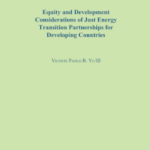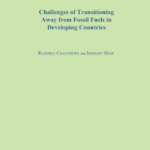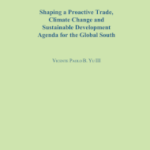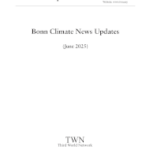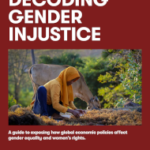致美国贸易代表和欧盟贸易专员的信函:支持疫情期间最不发达国家的复苏
第三世界网络——关于健康问题的信息服务
2021年4月27日
第三世界网络
亲爱的朋友与同仁,
约50位知名专家和学者致函美国贸易代表和欧盟贸易专员,支持最不发达国家延长过渡期的请求。该信参见
https://www.bu.edu/gdp/2021/04/22/letter-to-the-ustr-and-eu-trade-commissioner-support-pandemic-recovery-for-least-developed-countries/
祝好,
第三世界网络
致美国贸易代表和欧盟贸易专员的信函:支持疫情期间最不发达国家的复苏
2021年4月22日,波士顿大学全球发展政策中心贸易条约和药品准入工作组成员致信美国贸易代表Katherine Tai和欧盟贸易专员Valdis Dombrovskis,紧急请求根据世界贸易组织《与贸易有关的知识产权协定》第66.1条规定,延长最不发达国家的过渡期:
尊敬的Tai大使和Dombrovskis专员,
我们(即以下签署人)是一个在经济学、公共健康、政治学、法学和其他许多领域具有专门知识和经验的研究人员和学者的集体,致力于促进健康产品、教育资源、绿色技术和其他公共产品的广泛可获得性。这些产品与联合国的可持续发展目标和促进人权、粮食安全、气候行动以及可持续、公平的技术和工业发展目标密不可分,特别是对最不发达国家(LDCs)而言。鉴于这些担忧,我们敦促您们支持最不发达国家团体向世贸组织《与贸易有关的知识产权协定》理事会(TRIPS)提出的有关过渡期的请求(IP / C / W / 668)。
TRIPS协定第66.1条给予世贸组织最不发达国家成员最初十年的过渡期,并自动给予进一步延长的权利。鉴于最不发达国家成员的特殊需要和要求,其经济、财政和管理的局限性,以及其为创立可行的创新技术基础所需的灵活性,他们可以免除履行大多数TRIPS义务。整体过渡期原定于2005年12月31日到期,但在最不发达国家提出要求后,又延长了两次。然而,每次都没有满足最不发达国家的全部需求,高收入国家只愿意给予不切实际的短期延长。2013年批准的最新过渡期延长将于2021年7月1日再次到期。2020年10月1日,最不发达国家集团向世贸组织TRIPS理事会提交了一份具有正当动机的请求(IP/C/W/668),希望延长过渡期。只要一个国家仍然是最不发达国家或是在脱离最不发达国家地位后的12年内,就可以寻求过渡期延长以确保顺利过渡。我们坚信,这一要求是完全合理的。
事实证明,迄今为止给予的短期延长是考虑不周且不现实的,导致最不发达国家反复向TRIPS理事会寻求延期。最不发达国家需要制定自己的产业政策和可行的技术基础来克服能力限制,所有这些都需要长期战略。鉴于这一点,短期延长是不切实际的。此外,即使最不发达国家脱离了最不发达国家类别,这些挑战仍然存在。这种延期灵活性对于各国能够有效应对新出现的全球挑战,包括大流行病和当前的气候危机,以及维护本国人民的权利也至关重要。
认识到这一情况,联合国大会决议呼吁世贸组织成员考虑将最不发达国家现有的特殊和差别待遇措施和豁免扩大到刚脱离最不发达国家类别的成员国上。
这一流行病对最不发达国家的经济前景和长期发展产生了严重的破坏性影响,使其无法制定可持续战略来履行TRIPS义务。疫情间,发达经济体从历史低利率中受益,得以为其应对计划提供资金,但最不发达国家的收入来源已经枯竭,汇款锐减,全球供应链崩溃,旅游业停止。G20提议推迟最不发达国家的双边债务偿还,但这远远没有达到抗击病毒和保护生命所需的财政空间,且私人或多边债务则没有类似的待遇。从经济危机的不平等角度来看,全球经济刺激计划的规模已超过13万亿美元,但其中低收入国家使用的只有不到1%。
2020年是执行《2011-2020十年期支援最不发达国家行动纲领》(《伊斯坦布尔行动纲领》)的最后一年。虽然可能已经取得了一些非常微小的进展,但最不发达国家继续面临着严峻的发展挑战,而现在,COVID-19更是加剧了这些挑战。联合国开发计划署(UNDP)估计,全球人类发展作为衡量世界教育、健康和生活水平的综合指标,30年来首次出现下降。世界银行估计,由于这一大流行病,将有2.5亿多人陷入贫困(以每天3.20美元为基准)。此外,多数最不发达国家可能在数年内无法获得广泛的COVID-19疫苗接种和有效治疗。COVID-19还造成许多其他健康服务停止或减少,例如儿童免疫接种工作。从各方面来看,在今后许多年中,最不发达国家受COVID-19流行病的影响最大。在这种情况下,为执行TRIPS协定最后期限而拨出相关的经济、财政和行政费用是不可接受的。
最后,我们要求您履行第66.1条规定的义务,无条件地同意最不发达国家动机适当的延期请求,并通过IP/C/W/668中提出的决定案文。鉴于当今前所未有的社会和经济困难,任何拒绝或削弱最不发达国家要求的企图都是不合情理的。相反,全面采纳最不发达国家的要求,将增强世贸组织作为一个能够使国际社会最贫困和最弱势群体受益并能应对我们面临的集体挑战的机构的信誉。
签署人:
Kevin P. Gallagher, Professor, Frederick S. Pardee School of Global Studies, Boston University; Director, Global Development Policy Center
Veronika Wirtz, Associate Professor, Department of Global Health, Boston University School of Public Health; Director, World Health Organization Collaborating Center in Pharmaceutical Policy; Director, Certificate in Pharmaceutical Development, Delivery and Access.
Warren Kaplan, Clinical Assistant Professor, Department of Global Health, Boston University School of Public Health; Member of the World Health Organization Collaborating Center in Pharmaceutical Policy
Joseph Stiglitz, Professor, Columbia University
Mariana Mazzucuto, Professor, University College London
Jose Antonio Ocampo, Professor, Columbia University
Ha-Joon Chang, Reader in the Political Economy of Development, University of Cambridge
Philip Alston, Professor of Law, New York University
Rachel Thrasher, Researcher, Global Development Policy Center, Boston University
Brook Baker, Professor of Law, Northeastern University School of Law; Senior Policy Analyst, Health GAP (Global Access Project)
Deborah Gleeson, Senior Lecturer, School of Psychology and Public Health at La Trobe University
Jayati Ghosh, Professor, University of Massachusetts at Amherst
Chiara Piovani, Associate Professor, University of Denver
Joel Lexchin, Professor Emeritus, York University
Richard Elliott, Executive Director, HIV Legal Network (Canada)
Mauricio Aragno, PSM specialist, UNDP/MSF
Farida Khan, Professor of Economics, University of Colorado, Colorado Springs
Susan Craddock, Professor, University of Minnesota
Anis Chowdhury, Adjunct Professor, Western Sydney University and University of New South Wales, Australia
Ellen ‘t Hoen, Global Health Law Fellow, Law Faculty, University of Groningen
Nicolas Pons-Vignon, Professor, SUPSI
Hans V Hogerzeil, former WHO Director of Essential Medicines Policies, Professor Global Health, University of Groningen, Netherlands
Marzia Fontana, Research Associate, IDS at Sussex
Raffaella Ravinetto, Senior researcher, Institute Tropical Medicine Belgium
Elisa Van Waeyenberge, Co-Head of Department, SOAS University of London (Economics)
Scott Burris, Professor of Law and Public Health, Temple University
Abiodun Awosusi, Health Economist, Health Systems and Development Enterprise
Kristof Decoster, Knowledge Manager and Health Policies Newsletter Editor, ITM
Erlend Grønningen, Consultant and Researcher, University of Bergen
Sharan Burrow, General Secretary, ITUC
Alison Tate, Director, Economic and Social Policy, ITUC
Xavier De Bethune, Retired Public Health Physician
Pritish Behuria, Lecturer and Assistant Professor, University of Manchester
Michael Palmedo, Assistant Director for Interdisciplinary Research, Program on Information Justice and Intellectual Property, American University
Richard Hill, President, Association for Proper Internet Governance
Thomas Pogge, Professor, Yale University
Ilene Grabel, Distinguished University Professor, Josef Korbel School of International Studies, University of Denver
Claudia Marcela Vargas-Peláez, Director, Fundación IFARMA
Jeff Rudin, Research Associate, Alternative Information & Development Centre (AIDC), Cape Town, South Africa
Bing Han, Senior Research Fellow, Department International Investment, Institute of World Economics and Politics, Chinese Academy of Social Sciences
Pedro Mendes Loureiro, Lecturer, University of Cambridge
Deepak Nayyar, Emeritus Professor of Economics, Jawaharlal Nehru University, New Delhi
Gita Sen, Professor, Public Health Foundation of India (PHFI)
Isabel Ortiz, Director Global Social Justice, Initiative for Policy Dialogue (IPD) at Columbia University
Gabriele Köhler, Independent Development Economist
Bodo Ellmers, Director, Financing for Sustainable Development Program, Global Policy Forum Europe
Frances Stewart, Professor Emeritus of Development Economics, University of Oxford
Dr. Dan Gay, Advisor, United Nations; Advisor, Organisation for Economic Co-operation and Development (OECD)




